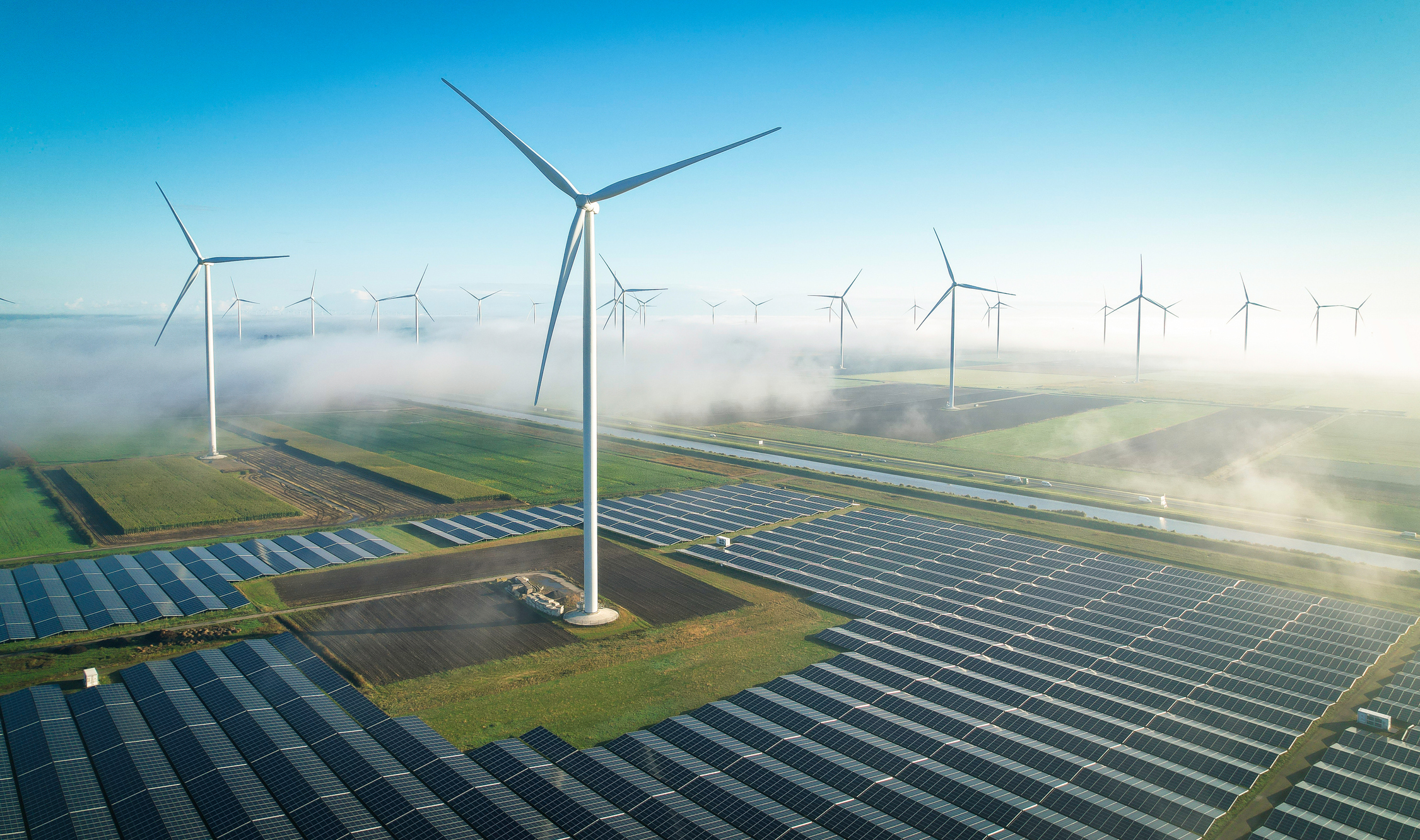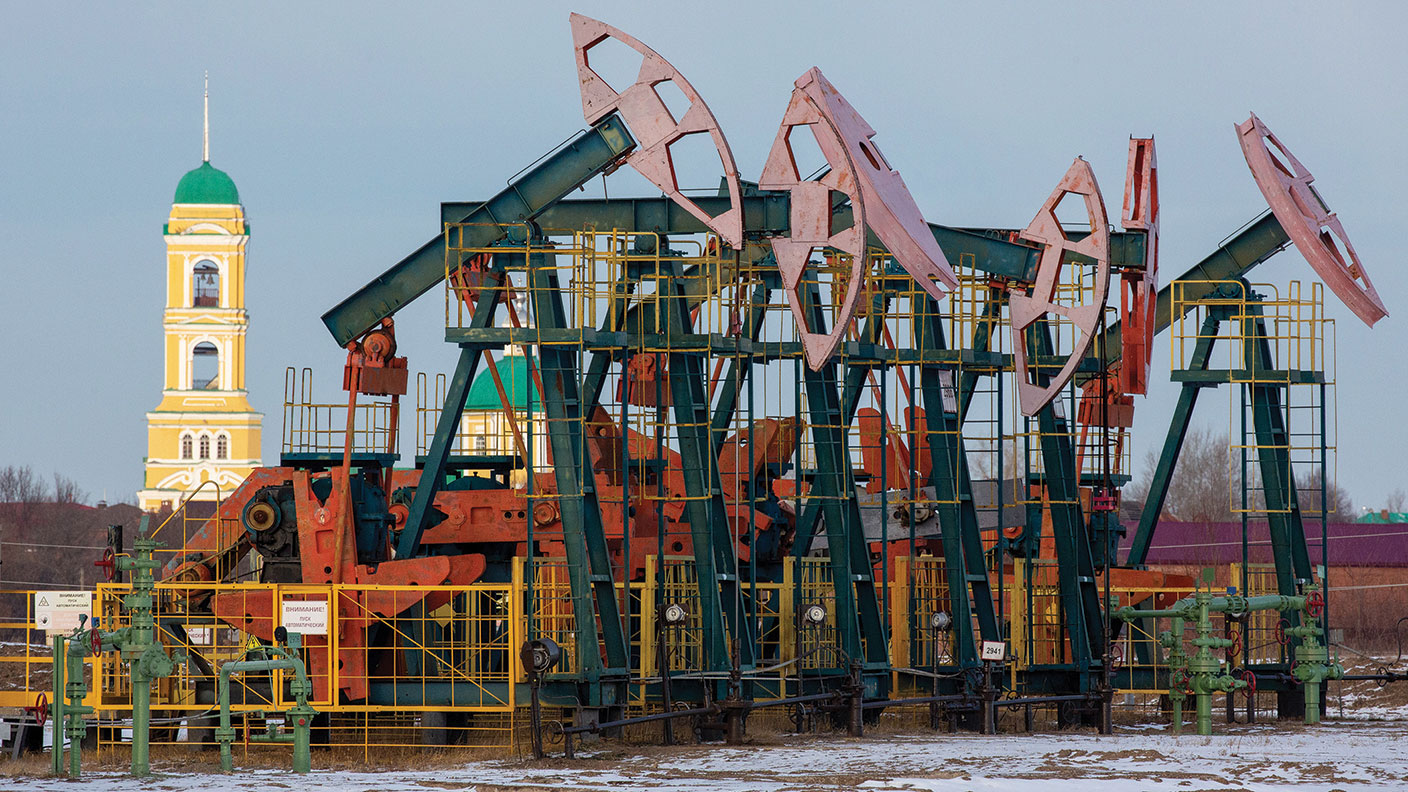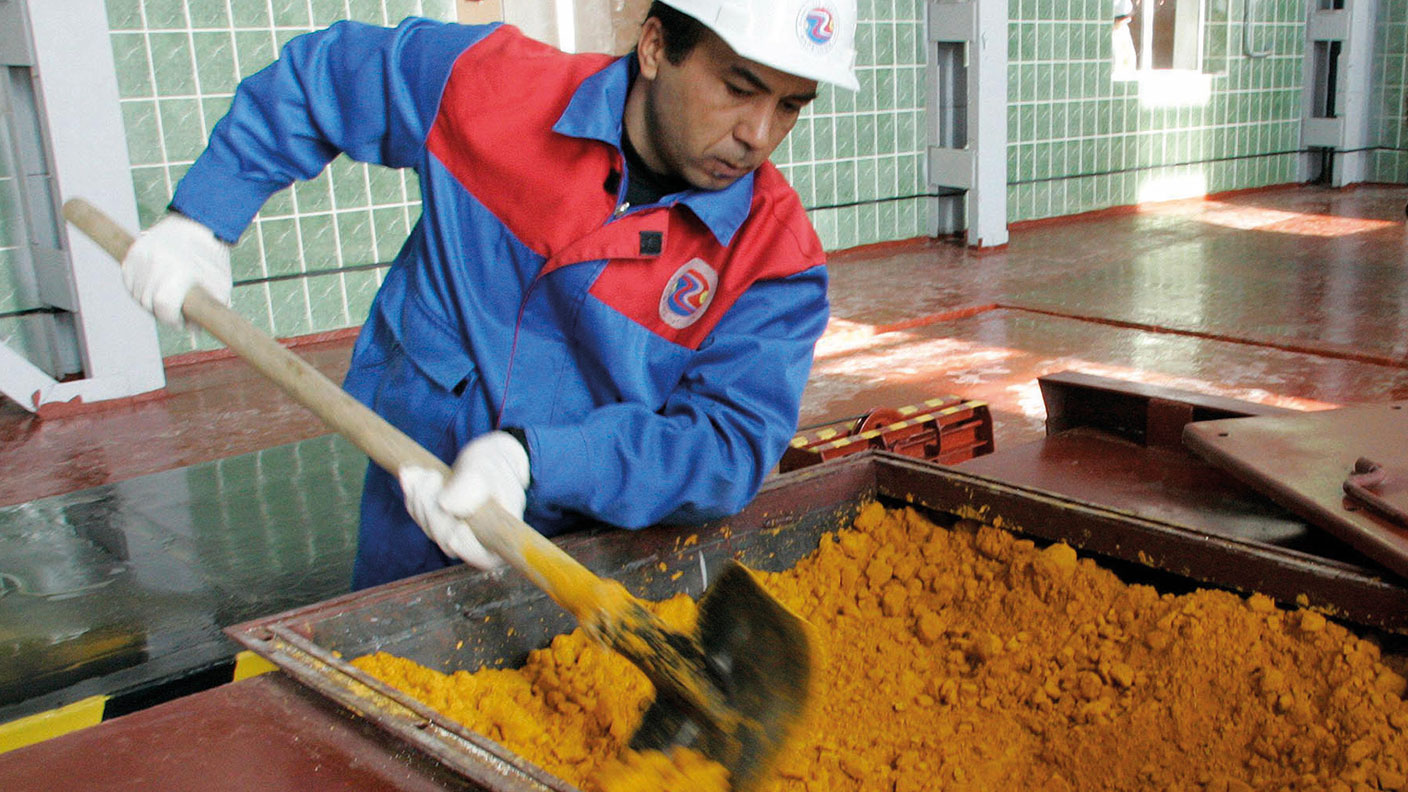The collapse in commodities
The fall in commodity prices has moved centre stage in investors' worries, with the pace quickening in the past few days.

Get the latest financial news, insights and expert analysis from our award-winning MoneyWeek team, to help you understand what really matters when it comes to your finances.
You are now subscribed
Your newsletter sign-up was successful
Want to add more newsletters?

Twice daily
MoneyWeek
Get the latest financial news, insights and expert analysis from our award-winning MoneyWeek team, to help you understand what really matters when it comes to your finances.

Four times a week
Look After My Bills
Sign up to our free money-saving newsletter, filled with the latest news and expert advice to help you find the best tips and deals for managing your bills. Start saving today!
"Just when investors thought it might be time for a summer lull" financial markets have a new drama. With a Greek exit from the eurozone off the table for now, at least the fall in commodity prices has moved centre stage, with the pace quickening in the past few days.
The Bloomberg Commodity index, which tracks 22 raw materials, has fallen by around 30% this year alone, and has now reached its lowest level since 2002. Prices have slumped across the board. Brent crude has fallen to a four-month trough around $53 a barrel. Gold is at a five-year low. Copper hasn't been this cheap since the depths of the global crisis. Unusually healthy American harvests are depressing grain prices.
Strong supply and weak demand
So commodity demand is in a structural slowdown. On top of this, while official GDP data "continue to helpfully meet Beijing's targets", as The Wall Street Journal's Liam Denning puts it, other numbers point downwards. Early this week, for instance, an index tracking the manufacturing sector slid to a 15-month low. The sector has been shrinking for five months now.
MoneyWeek
Subscribe to MoneyWeek today and get your first six magazine issues absolutely FREE

Sign up to Money Morning
Don't miss the latest investment and personal finances news, market analysis, plus money-saving tips with our free twice-daily newsletter
Don't miss the latest investment and personal finances news, market analysis, plus money-saving tips with our free twice-daily newsletter
In recent weeks, huge losses on the Chinese stockmarket (albeit following a very rapid run-up), and the potential ramifications for the economy, have compounded jitters about an unexpectedly sharp slowdown.The Greek crisis has also fuelled worry over a further slowdown in Europe.
Meanwhile, most commodity markets look well supplied, especially the oil market. Oil cartel Opec is still pumping record amounts, while the number of oil drilling rigs recently rose by its highest weekly total in a year. So it seems that "shale producers are finding ways to weather low prices", say Anjli Raval and David Sheppard in the Financial Times. There is also plenty of industrial metal around, particularly iron ore. Finally, a US dollar bull market has always been bad news for assets priced in the American currency. With markets expecting a rise in US interest rates, the dollar's strength seems likely to continue for now.
Is the bottom in sight?
Of course, this could be a contrarian signal. "The pendulum has... swung too far towards pessimism," reckons Capital Economics. Overall sentiment has rarely, if ever, been more negative, yet the backdrop isn't as bad as all that. As far as China is concerned, recent stimulus has yet to kick in, while few Chinese private investors actually own shares, so the market slump shouldn't hit the economy hard. The likelihood is that global economic activity hit bottom in the first quarter, so demand should improve. Meanwhile, the supply of some base metals is beginning to tighten.
It's also worth noting that major mining companies haven't offered such high yields since the 1990s (apart from during a few months during the 2008/2009 crisis), says Helen Thomas in The Wall Street Journal. All this could spell opportunity. We'll be taking a closer look at the mining sector in next week's issue of MoneyWeek.
Get the latest financial news, insights and expert analysis from our award-winning MoneyWeek team, to help you understand what really matters when it comes to your finances.

-
 MoneyWeek news quiz: Can you get smart meter compensation?
MoneyWeek news quiz: Can you get smart meter compensation?Smart meter compensation rules, Premium Bonds winners, and the Bank of England’s latest base rate decision all made the news this week. How closely were you following it?
-
 Adventures in Saudi Arabia
Adventures in Saudi ArabiaTravel The kingdom of Saudi Arabia in the Middle East is rich in undiscovered natural beauty. Get there before everybody else does, says Merryn Somerset Webb
-
 Is the market missing the opportunity in energy?
Is the market missing the opportunity in energy? -
 The demand for oil is slowing and green energy is taking over
The demand for oil is slowing and green energy is taking overThe IEA forecasts oil demand growth to slow sharply in the next few years. The end of the era may be underway.
-
 Fuel prices could rise again as Opec cuts production
Fuel prices could rise again as Opec cuts productionNews Major oil-producing countries have decided to cut oil production by two million barrels per day – could this mean higher fuel prices?
-
 Why is the petrol price rising again?
Why is the petrol price rising again?Brits are being hit by a triple-whammy of increasing oil prices, a falling pound, and new fuel mix standards that are pushing up petrol prices
-
 How to invest in copper, the most important metal in the world
How to invest in copper, the most important metal in the worldCover Story As the world looks to electrify and try to move away from fossil fuels, copper looks set to be the biggest beneficiary. But how can you invest? Rupert Hargreaves analyses the sector.
-
 Oil shortage starts to curb demand
Oil shortage starts to curb demandNews The price of Brent crude oil is up by 475% since its March 2020 low. And when oil prices rise, people start to reduce consumption, leading to increased fears of a recession.
-
 An uncertain outlook for oil supply
An uncertain outlook for oil supplyNews Much of the speculative froth seems to have gone from the oil market, but sanctions on Russia is disturbing the crude oil supply.
-
 Why the uranium price is set to keep rising
Why the uranium price is set to keep risingNews Turmoil in Kazakhstan – the world's leading producer of uranium, has sent the uranium price up by more than 8% in a week. And that's not the end of it.